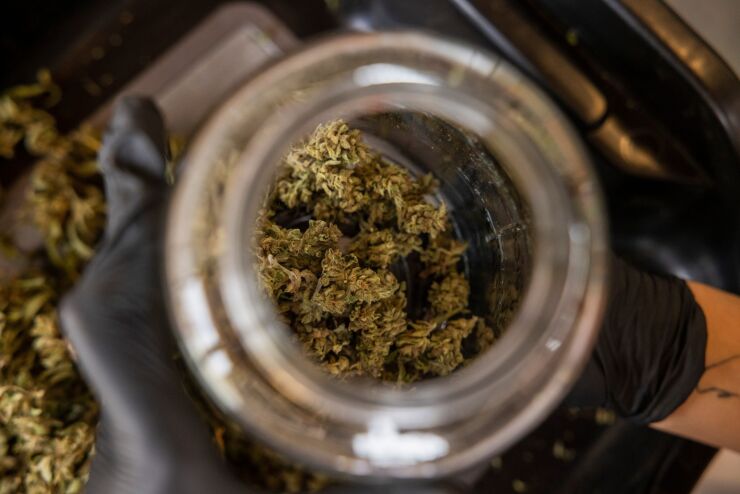
President Trump's potential support for
Even if Congress advances the SAFER Act or folds it into adjacent legislation, such efforts alone won't resolve the
The SAFER Act primarily offers legal protection to banks and credit unions serving cannabis businesses in states where they are legally allowed to operate. It addresses liability, but not the complexity. Today, the cannabis economy spans more than 41 states and territories, with each having its own, distinct set of rules, tax regimes and compliance mandates. Financial institutions need far more than legal permission — they need operational clarity, compliance guardrails, regulatory uniformity and a road map for navigating risk.
Many institutions won't bank cannabis clients until they have confidence that the federal government not only won't penalize them, but also provides a standardized framework for onboarding, monitoring and reporting. The SAFER Act won't do that as it leaves too much undefined.
Cannabis businesses operate in a uniquely complex environment. They're legal within certain states but illegal federally. Many deal with high volumes of cash, have limited access to credit and are subject to Section 280E of the Internal Revenue code, which disallows ordinary business deductions. Small-business owners face persistent stigma and heightened regulatory scrutiny and their compliance requirements change constantly as local laws evolve.
Cannabis is no longer a fringe market — it's a $38+ billion industry, generating tax revenue, creating jobs and revitalizing communities. Projections indicate a significant revenue increase to $76.39 billion by 2030, driven by increasing legalization and acceptance of both medical and recreational cannabis. Yet we still lack the kind of risk models, guidance and compliance standards that other sectors take for granted.
Many fintech companies have spent the past decade building an infrastructure that traditional banks can model and rely upon. They have developed onboarding procedures, know-your-customer and anti-money-laundering protocols, transaction monitoring, audit trails, and client education materials specifically for cannabis. These companies have facilitated billions in compliant transactions through financial institution partners across the country.
Through strategic partnerships, they have extended their ecosystems to include CFO-level advisory, audit readiness and access to capital — creating a financial foundation for operators that rivals any traditional industry.
Fairfax-based MainStreet Bancshares is pivoting to the niche business as a means to boost its Avenu banking-as-a-service platform, which has failed to hit deposit and revenue targets.
This isn't theoretical. It's operational. And it's working. But it's happening in a vacuum, without federal coordination, oversight or long-term stability.
We don't need to reinvent banking to support cannabis. But we do need a clear, federally coordinated compliance framework tailored to the sector. That means establishing uniform standards for due diligence and risk assessment, creating guidance on handling cash and armored transport, codifying reporting and monitoring for cannabis-related transactions and enabling fintech and nonbank participation in compliance innovation.
Most importantly, we need regulators and lawmakers to recognize cannabis as an emerging economic sector deserving of legitimate, stable financial support.
Financial institutions are watching and waiting. But fintechs are building. They are not waiting for the SAFER Act to pass — they are solving real problems now. Regulators, banks and legislators can learn from these experiences and codify what's already working.
SAFER is a step. A framework is a strategy. The difference matters.
We need to start treating cannabis as a cornerstone of modern financial inclusion.






